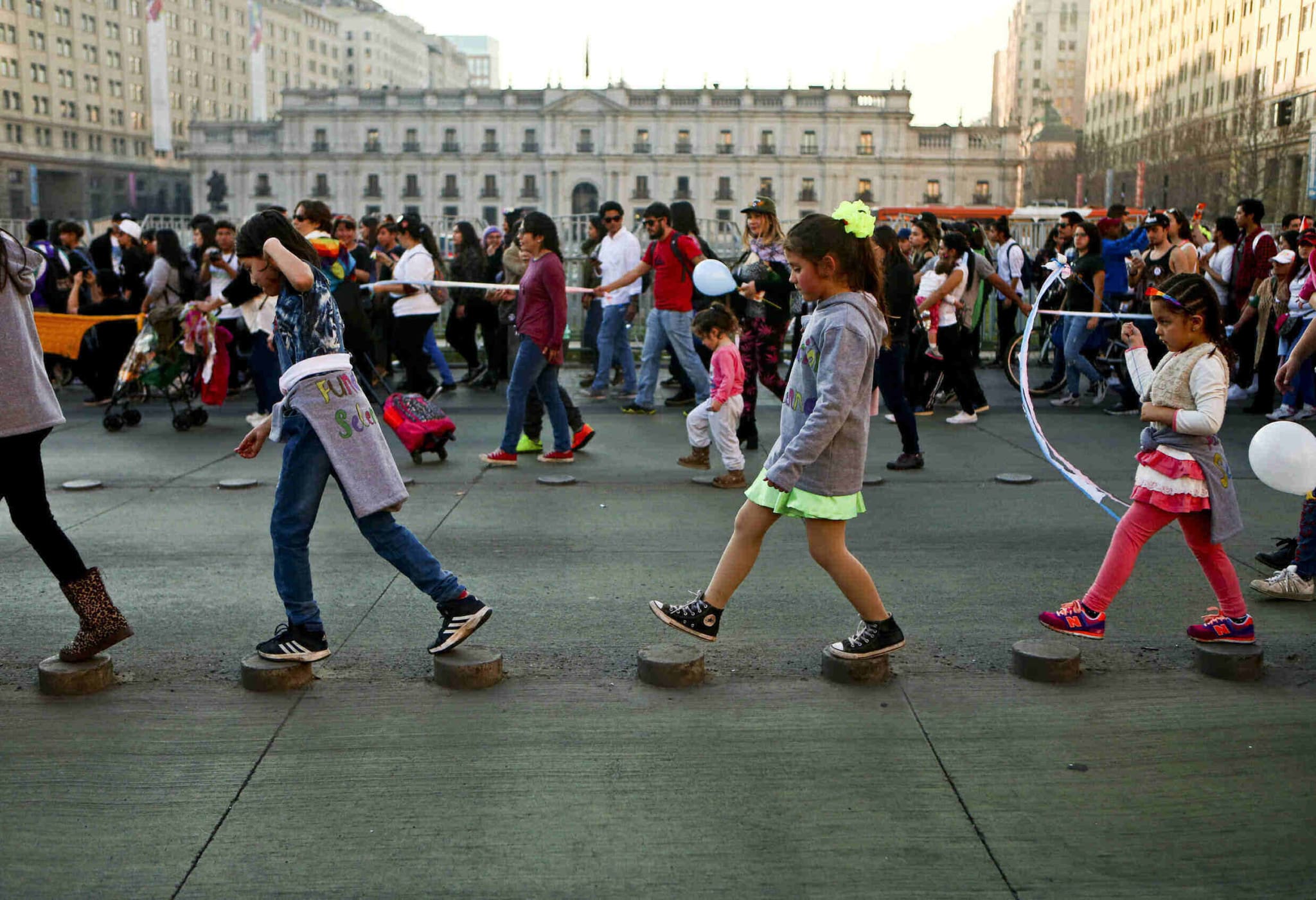It is not just countries like the United States, Great Britain and the United Kingdom that are experiencing a dramatic rise in children who want to change their gender. Countries like Czechia are seeing a rise in such cases.
The number of children with gender identity disorders is growing in doctor’s offices, saying they do not identify with their biological gender – boys feel like girls and vice versa, according to Czech news outlet Lidovky.
“We mainly attribute this to greater enlightenment and awareness of the population in general,” said Petr Weiss, chairman of the Czech Sexological Society.
According to Weiss, pediatricians, educational counselors, and teachers are increasingly aware of gender issues. Children, at the same time, are exposed to the issue on a scale never seen before. While Weiss and others portray the development as positive, surgery, hormones and puberty blockers can alter the ilfe of young people, sometimes permanently. Gender reassignment surgery is also associated with higher risks of depression, self-harm and suicide.
Another major 30-year study from Sweden, a country highly supportive of those who want to change their gender, found that gender reassignment surgery led to a 20-fold increase in suicide for those who underwent it.
This is not the opinion of conservative or religious outlets either, but a well documented scientific consensus from a number of experts. The Guardian summarized the results of a meta-analysis reviewing “more than 100 follow-up studies of post-operative transsexuals” from Birmingham University’s Aggressive Research Intelligence Facility, writing:
[The Aggressive Research Intelligence Facility], which conducts reviews of health care treatments for the [National Health Service], concludes that none of the studies provides conclusive evidence that gender reassignment is beneficial for patients. It found that most research was poorly designed, which skewed the results in favor of physically changing sex. There was no evaluation of whether other treatments, such as long-term counseling, might help transsexuals, or whether their gender confusion might lessen over time.
Nevertheless, more and more minors arrive at the sexology department of the University Hospital Brno. While in 2019, doctors treated 20 transgender patients under the age of 18, a year later there were over 30.
“This year is not over yet, and we cannot accept new patients,” said Petra Sejbalová, head of the Brno sexology department.
The growing trend is also confirmed by the Institute of Sexology of the General University Hospital in Prague. “We know from the literature that this is also the case in other countries,” said Ivo Procházka, deputy head of the institute. There are currently 20 to 30 minors in permanent care who are requesting a gender reassignment.
Olomouc sexologist Pavla Entnerová also has more pediatric patients. According to her, today, children confide their that they want to change their gender earlier than ever before.
“There used to be a different atmosphere in society, people were ashamed and sometimes hid it for a very long time,” said Etnerová.
Girls more likely to have problems
Social networks also play an important role. “Through them, they communicate with people with the same problems, they know that they are not alone in this and that someone else has this diagnosis,” the sexologist from Olomouc continued.
According to statistics from the Brno hospital, the issue is more about girls. “In 90 percent of cases we treat girls who feel like a boy,” said Sejbalová.
The phenomenon of girls increasingly wanting to be boys has been documented in other countries as well, with public figures such as J.K. Rowling wading into the debate, saying that it represents a possible sign of a trend or fad with sometimes life-altering results, a position she was widely attacked for from trans activists and certain elements of the left.
“Most people probably aren’t aware – I certainly wasn’t, until I started researching this issue properly – that ten years ago, the majority of people wanting to transition to the opposite sex were male. That ratio has now reversed. The UK has experienced a 4400% increase in girls being referred for transitioning treatment. Autistic girls are hugely overrepresented in their numbers,” she wrote last year in a long-form article.
Diagnosis takes a long time
Diagnosis of gender disorders in Czechia, like elsewhere, is usually time-consuming and complex.
First, the opinion of two independent experts – a sexologist and a psychologist – is needed. Then comes the decision-making phase, when hormone blocking medicine is applied to the pediatric patient.
“Of course, the interest of the patient, the consent of his parents, the positive opinion of the medical team, ie sexologists, psychologists, and pediatric endocrinologists, determine it. If the patient is in psychiatric care, we also want a statement from a psychiatrist,” described Procházka from the Institute of Sexology of the General University Hospital in Prague.
The chairman of the Sexological Society, Petr Weiss, also claims they move carefully and thoroughly. “We have a sophisticated system that prevents undesirable consequences and especially misdiagnosed diagnoses, we follow the rules and standards of international organizations caring for transgender individuals,” he said.
Blockade of puberty prevents the development of secondary sexual characteristics typical of biological sex – in girls, it stops breast growth and menstruation, in boys beard or muscle growth and the deepening of the voice. Importantly, it does not yet create the characteristics of the opposite sex. So the girl will not grow an apple core and the boy’s chest will not enlarge. The docotrs claim this give time for the child to “thinjk”.
“Blockade therapy usually allows a full return to the original sex if the diagnosis is not confirmed,” Procházka continued.
When the sexual identity disorder is confirmed and the child still wants a gender reassignment, doctors move forward with hormonal therapy. It can start at the age of 16 at the earliest and there is no going back. “But the degree of irreversibility of changes depends on the duration of treatment,” added Procházka. The actual change of sex through surgery can be done at the age of eighteen.
Change of mind? Possible before hormonal treatment
According to sexologists, a child may change his mind during the diagnostic process. Fortunately, this usually happens before the start of hormonal treatment, so returning to the original sex is without problems.
The Sexology Department at the University Hospital Brno conducted a study some time ago when doctors analyzed all pediatric clients with a gender identity disorder in their care from 2012 to 2019. “We found that 40 percent of children and adolescents who have confirmed transsexualism and were entitled to initiate hormonal treatment, gradually withdrew from our care. Given that no one requested medical documentation, we assume that they changed their minds in some way,“ described the headmistress Sejbalová.
In other words, nearly half of those involved in the process in Czechia change their minds and do not go through with the procedure.
Title image: In this July 1, 2017 photo, transgender girls Selenna, center right, and Mathilda, far right, walk on street stumps with other children outside La Moneda government palace during a Gay Pride march in Santiago, Chile.






